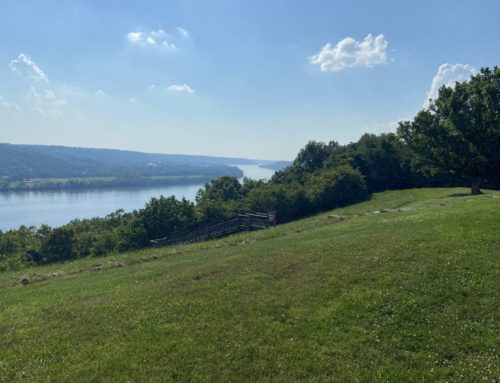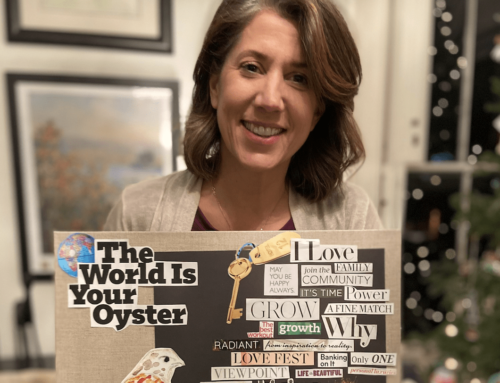In the 6th grade, I took a lifesaving class at my local park. One of the first things I learned was the importance of the “dead man’s float.” I am sure you’ve done this a time or two…put your face in the water and just floated on your belly with arms and legs dangling. It was a fun thing to do as a kid because you could pretend to be in a submarine or an scuba diver, or you could just scare the crap out of your mom who couldn’t tell if you were breathing or not. Oh the fun!
The thing about the dead man’s float is that because you are underwater you really can’t hear anything except muffled voices and everything is blurry and blue. The only interruption is when you lift your head for a quick breath. Then it’s back to floating paradise.
If you are ever in a drowning situation, the dead man’s float becomes your lifeline. By simply floating, you are, in essence, reserving your energy for the one thing that will save your life: air. It also makes you easier to rescue. Lifeguards are trained to calm down thrashing, gasping victims before they attempt to rescue them. Why? Because panicky, drowning victims drown other people.
Calm down. Relax. Stop moving.
Sounds simple enough, but when you are in survival mode, shutting down is counter intuitive. The natural response is to figure out a way – and quickly – to exit the harrowing situation as quickly as possible. Stopping is a luxury that doesn’t seem to exist in those moments.
There is a universal truth here: There is power in pushing the pause button; especially when there are so many things that want our attention.
All. Day. Long. Every. Day.
Why is it this so hard? For me, it takes a measure of trust to stop what I’m doing, rest, relax and refresh. First, I am just not wired to sit still. Second, I am a (recovering) chronic over thinker, an affliction that follows me everywhere – even to the beach.
There is a mentality that if you are not working, you are not producing, therefore, you are not bringing value. We must squeeze every minute out of every day. There are hundreds of maxims supporting this line of thinking.
Could it be possible that there is value in occasionally doing absolutely nothing? And not requiring an outcome?
I think this is one reason why yoga is so popular. It’s a form of meditation but also it’s connected to movement. People crave contemplative space and yoga hits a lot of buttons. It’s more than coincidental that the word vinyasa, which is the pause between yoga movements, is believed to be as important as the sustained postures themselves.
In the psalms, which were often set to music, the pause is called Selah. It means to stop and listen. The psalmist instructs the reader or musician to wait before moving on to the next passage. It stresses the importance of what has just been said and gives time to prepare for the next thought.
Let’s assume that there is intrinsic value to being still. I have found these to be consistent benefits of ‘alone time’ as well.
- Being truly refreshed – physically, mentally and spiritually. A period of stillness brings real rejuvenation. It’s not an escape from life’s challenges; it’s a solution. Energy returns to all aspects of your life.
- Mental clarity. Reality is unveiled – both the amazing things that are happening around you and the potential snares that could trip you up. When we pause we see clearly, we can make tweaks or major changes to get back on track.
- Opportunities are more visible. When the dross is removed from your mind and soul, space is freed up for new ideas. Problem solving becomes an energetic and creative process rather than drudgery. The journey now becomes an adventure of possibility – we even create space to give more of ourselves to the world around us.
- Connection with our true self is made. This is perhaps the most important outcome of meditation and stillness. Somehow, the truth of who we are, what is most important in our lives and how we want to live comes flooding in. These thoughts seldom come when we are pushing and prodding our way through the daily grind.
Think about the last time you were able to reconnect and replenish your energy and creative juices. When were you last enlightened? Where was it? What were you doing? What time of day? Indoors or outside? Journaling, running, gardening, meditating…or floating?
My sweet spot is near water with a pen and paper. I am giving myself permission to spend more time there these days.
The value in creating space to breathe, think or create is immense. Our ability to lead others comes directly from our ability to understand ourselves. Then we are able to press through challenges with grace, innovate by opening our eyes to new opportunities and give our best to lead others. The most effective and respected leaders take time, as Steven Covey says, to sharpen the saw. Of his Seven Habits, it’s the habit that “makes all the others possible.” Sharpening the saw means investing in your most important tool: yourself.
Want to be a better leader? Set aside some time today to simply float.
All the best,
Alexia
PS Join me for my upcoming Discovering Your Mission Workshop on August 25 from 2:00 – 4:30. It’s a time of reflection and fun where we will write your personal mission statement.
https://www.eventbrite.com/myevent?eid=35942797876
Alexia is a leadership coach who leads leaders to a greater good by helping them discover their mission and vision in life. Contact her at alexia@alexiazigoris.com for more information or visit her website at https://alexiazigoris.com to learn more.






So very true. I am not refueling, only draining at this point by constant movement. Chaos really. It is ok to float and refuel- you’re absolutely right. Thank you for sharing your wonderful perspective. I needed this and such great timing!